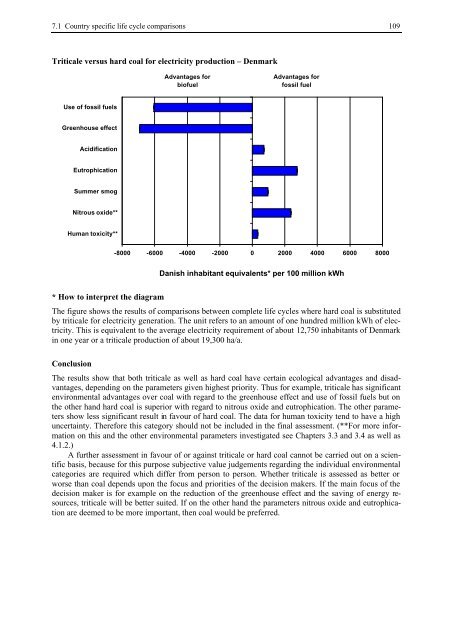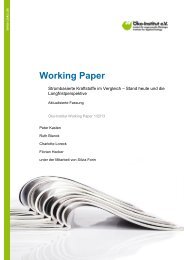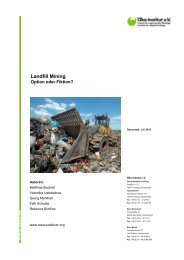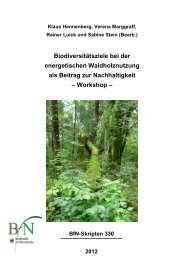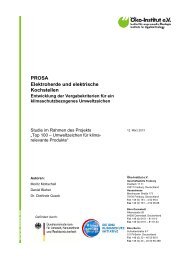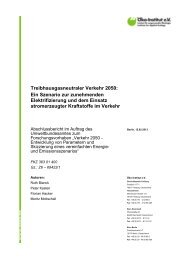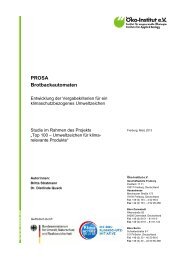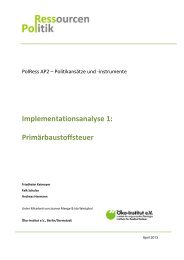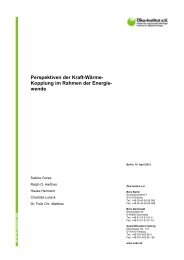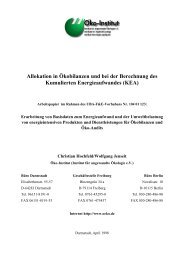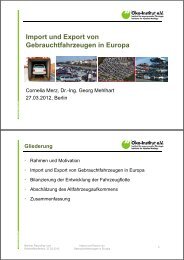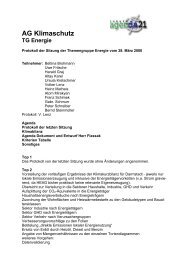BIOENERGY FOR EUROPE: WHICH ONES FIT BEST?
BIOENERGY FOR EUROPE: WHICH ONES FIT BEST?
BIOENERGY FOR EUROPE: WHICH ONES FIT BEST?
You also want an ePaper? Increase the reach of your titles
YUMPU automatically turns print PDFs into web optimized ePapers that Google loves.
7.1 Country specific life cycle comparisons 109<br />
Triticale versus hard coal for electricity production – Denmark<br />
Use of fossil fuels<br />
Greenhouse effect<br />
Acidification<br />
Eutrophication<br />
Summer smog<br />
Nitrous oxide**<br />
Human toxicity**<br />
* How to interpret the diagram<br />
Advantages for<br />
biofuel<br />
Advantages for<br />
fossil fuel<br />
-8000 -6000 -4000 -2000 0 2000 4000 6000 8000<br />
Danish inhabitant equivalents* per 100 million kWh<br />
The figure shows the results of comparisons between complete life cycles where hard coal is substituted<br />
by triticale for electricity generation. The unit refers to an amount of one hundred million kWh of electricity.<br />
This is equivalent to the average electricity requirement of about 12,750 inhabitants of Denmark<br />
in one year or a triticale production of about 19,300 ha/a.<br />
Conclusion<br />
The results show that both triticale as well as hard coal have certain ecological advantages and disadvantages,<br />
depending on the parameters given highest priority. Thus for example, triticale has significant<br />
environmental advantages over coal with regard to the greenhouse effect and use of fossil fuels but on<br />
the other hand hard coal is superior with regard to nitrous oxide and eutrophication. The other parameters<br />
show less significant result in favour of hard coal. The data for human toxicity tend to have a high<br />
uncertainty. Therefore this category should not be included in the final assessment. (**For more information<br />
on this and the other environmental parameters investigated see Chapters 3.3 and 3.4 as well as<br />
4.1.2.)<br />
A further assessment in favour of or against triticale or hard coal cannot be carried out on a scientific<br />
basis, because for this purpose subjective value judgements regarding the individual environmental<br />
categories are required which differ from person to person. Whether triticale is assessed as better or<br />
worse than coal depends upon the focus and priorities of the decision makers. If the main focus of the<br />
decision maker is for example on the reduction of the greenhouse effect and the saving of energy resources,<br />
triticale will be better suited. If on the other hand the parameters nitrous oxide and eutrophication<br />
are deemed to be more important, then coal would be preferred.


